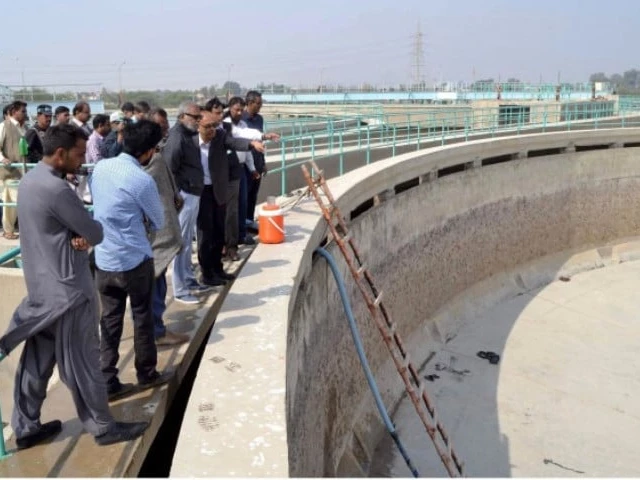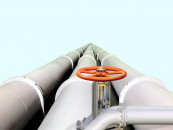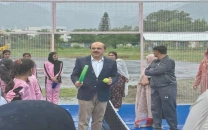'Unfiltered water' from Indus pumped directly to homes in Hyderabad
SEPA raids Jamshoro filtration plant amid rising public health fears

A major public health concern has surfaced across Hyderabad as large portions of the city's densely populated neighbourhoods continue to receive untreated water drawn directly from the Indus River.
The issue, long shrouded in administrative ambiguity and contradictory claims, came under sharp scrutiny when the Sindh Environmental Protection Agency (SEPA) conducted an unannounced inspection of the Jamshoro Filtration Plant, raising fresh alarms over water quality and civic negligence.
SEPA officials accompanied by Deputy Director Technical Imran Ali Abbasi collected water samples from key operational chambers, including the lagoon site, chlorination chamber and alum treatment units. These samples have been dispatched for laboratory analysis. The team confirmed that the plant supplies water to areas such as Qasimabad, Latifabad, and central Hyderabad, and hinted at imminent inspections at other filtration sites across the city.
The raid exposed systemic failures at multiple levels of the Hyderabad Water and Sewerage Corporation (HWSC). Despite official press releases asserting that "filtered and safe" drinking water is being supplied to the public, reality paints a different picture. Several filtration units-particularly those located in Phuleli, Hala Naka, Tando Yousuf, and Hussainabad-are completely defunct. Communities around Airport Road and Kohsar Housing Society are receiving water that is allegedly pumped directly from the river with no prior purification.
Residents have consistently complained of foul-smelling, visibly polluted water, with an uptick in skin infections and waterborne diseases reported over recent weeks-especially concerning during Muharram, a time when public gatherings and hydration needs intensify. SEPA's findings have amplified longstanding concerns that the city is teetering on the edge of an environmental and health emergency.
According to sources, only a fraction of the distributed water undergoes rudimentary alum treatment, while chlorination systems at major plants on Jamshoro Road, Preetabad, and Ghaghar Mori have failed due to outdated equipment and repeated gas drum leaks. Latifabad Unit 4 and Habib Farm reportedly receive untreated "raw water" diverted directly from the river.
Ironically, officials have in some cases shifted the blame to residents, claiming that water contamination stems from unauthorized plumbing work and underground pipe leakage. A recent public statement from the Water Corporation suggested that poor-quality installations by uncertified plumbers were contributing to the intrusion of impurities-an assertion SEPA has yet to verify.
Speaking to Express, Imran Ali Abbasi confirmed that additional surprise inspections will be conducted across filtration plants that supply densely inhabited sectors of the city. He emphasized that the 2014 Sindh Environmental Protection Act must be strictly enforced to ensure public access to clean drinking water.
In an editorial development long advocated by Daily Express, this unfolding situation underscores the critical need for structural overhauls, regulatory compliance, and renewed investment in water purification infrastructure. With millions at risk, civic authorities are now under pressure to provide more than just reassurances-and to act before this health hazard escalates into an irreversible crisis.

























COMMENTS
Comments are moderated and generally will be posted if they are on-topic and not abusive.
For more information, please see our Comments FAQ